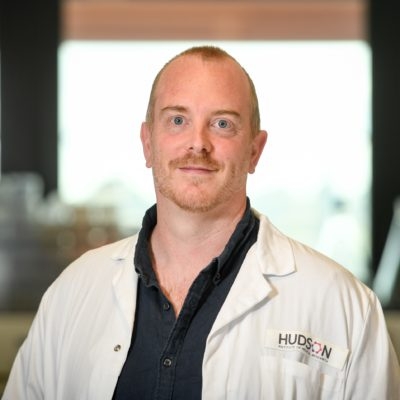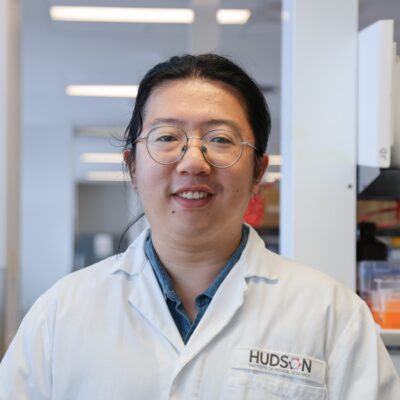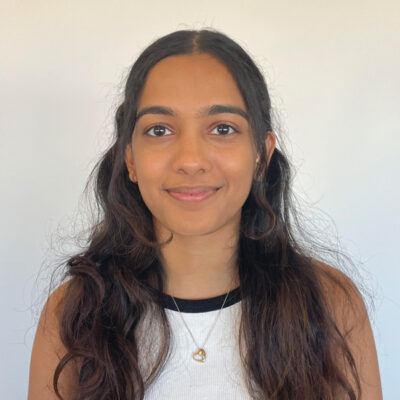Signal Transduction in Cancer Biology
Gough group
One in 20 people will be diagnosed with lung cancer by the age of 85. The Signal Transduction in Cancer Biology group is guiding new treatment approaches by defining how disruption to immune signalling pathways, through the critical STAT family of proteins, alters the onset and progression of lung cancer tumours.

Research group
Overview
There are several reasons why lung cancer is the deadliest cancer, including late detection, early and widespread metastasis, and poor response rates to current treatments including chemotherapy and recently approved immune based therapies.
The interaction between a tumour, its surrounding tissue and the immune system is a critical aspect of response to lung cancer treatment and metastatic potential. The Signal Transduction in Cancer Biology group investigates the tumour-immune ecosystem, with the goal of identifying how its interactions could be manipulated to find new therapeutic approaches.
The team are building this knowledge through research into fundamental cell communication networks, and how these are altered in cancer. These findings are translated into sophisticated cancer models and patient tissue, enabling a detailed understanding. The overarching goal is to use this knowledge to design better therapeutic approaches for lung cancer patients.
The Gough group’s expertise is in Signal Transducer and Activator of Transcription 3 (STAT3) proteins which are overexpressed lung cancer and promote tumour growth. They focus on the signal transduction pathways that engage STAT3 proteins in normal development, and how these pathways are altered in lung cancer.
STAT3 is a critical signalling protein that is essential for life. When activated, STAT3 initiates hundreds of genes necessary for proliferation, immune function, apoptosis, metabolism, and differentiation. STAT3 activity is tightly controlled. Too little activation results in immune disorders, while overaction is observed in more than 50 per cent of tumours with a poor prognosis. It is now emerging that in some tumour types, STAT3 acts as a tumour suppressor, but this has not yet been explained.
Associate Professor Gough’s latest research | How cancer works
Diseases we research
Areas of focus
- Answering how the innate immune system sculpts the tumour-immune ecosystem.
- Finding the drivers of platinum resistance in small cell lung cancer.
- Harnessing the innate immune system to block metastatic lung cancer.
- Discovering how STAT3 controls diverse and contradictory biological processes.
- Next Generation PDT Program – utilising naturally derived Next Generation Photodynamic Therapy (NG-PDT) compounds to target and kill tumour cells
Research Group Head | Associate Professor Daniel Gough
Lung cancer is the leading cause of cancer related deaths. I interrogate fundamental changes within the tumour and the interaction between the tumour and the immune system to inform new lung cancer therapies.

Meet the team

 Dr Daniel Garama
Research Scientist
Dr Daniel Garama
Research Scientist
 Dr Chaitanya Inampudi
Postdoctoral Scientist
Dr Chaitanya Inampudi
Postdoctoral Scientist
 Dr Muhammad (Alam) Alamgeer
Honorary Clinical Associate
Dr Muhammad (Alam) Alamgeer
Honorary Clinical Associate
 Associate Professor Surein Arulananda
Honorary Clinical Associate
Associate Professor Surein Arulananda
Honorary Clinical Associate
 Dr Daniel Croagh
Honorary Clinical Associate
Dr Daniel Croagh
Honorary Clinical Associate
 Dr Pranav Dorwal
Honorary Clinical Associate
Dr Pranav Dorwal
Honorary Clinical Associate
 Alastair Kwok
Honorary Research Associate
Alastair Kwok
Honorary Research Associate
 Alice Chang
Research Support Staff
Alice Chang
Research Support Staff
 Lethicia Low
Research Support Staff
Lethicia Low
Research Support Staff
 Vincent Xue
Research Support Staff
Vincent Xue
Research Support Staff
 Jack Roberts
PhD Student
Jack Roberts
PhD Student
 Nelson Yu
PhD Student
Nelson Yu
PhD Student
 Wenkai Zhang
PhD Student
Wenkai Zhang
PhD Student
 Yue Zhang
Masters Student
Yue Zhang
Masters Student
 Akshitha Rajesh
Honours Student
Akshitha Rajesh
Honours Student
News from the lab
Student opportunities

Collaborators

Publication highlights

